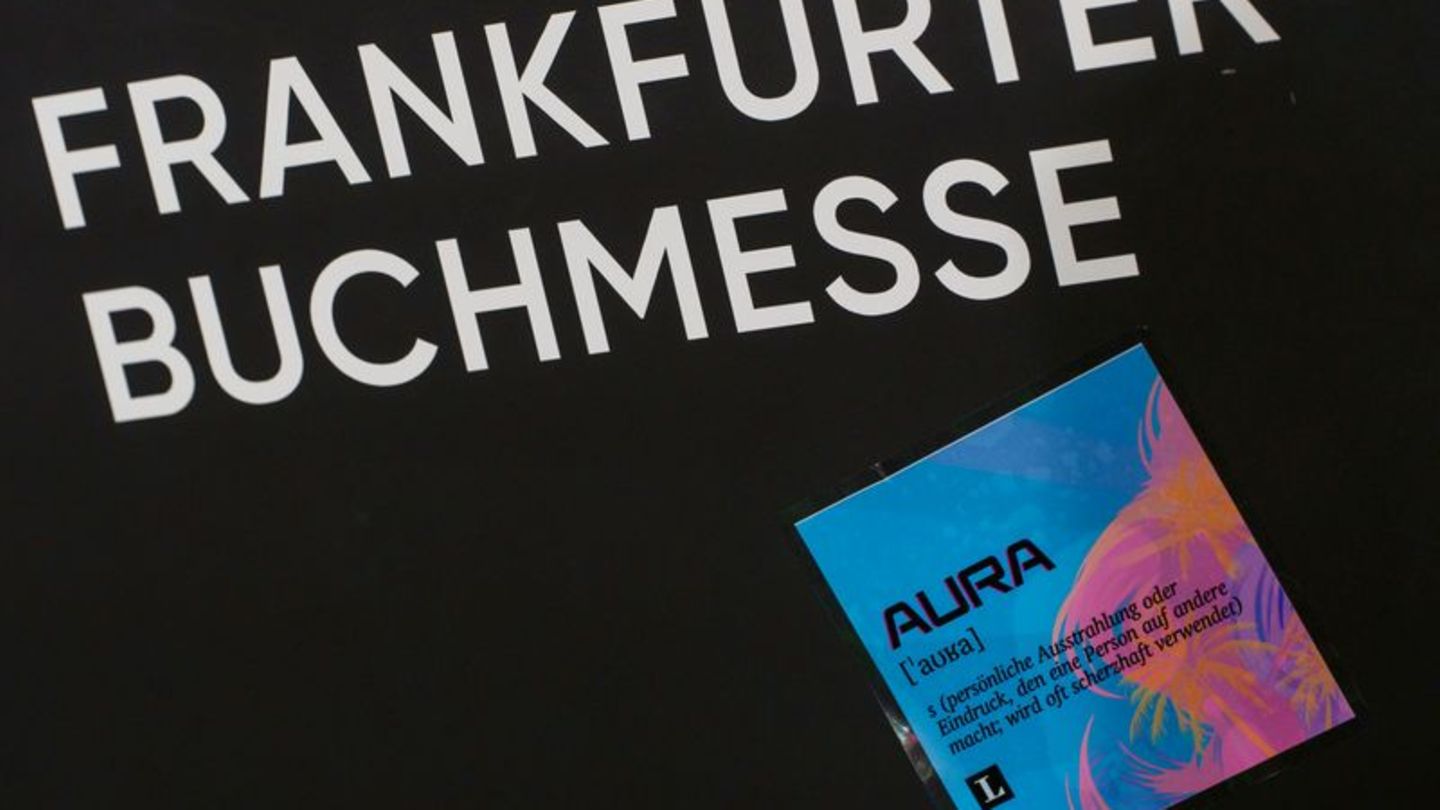What may sound esoteric to older people has a different meaning to younger people. Athletes in particular are often attributed an “aura” on social media. A controversial term comes in close behind.
Young people have chosen “Aura” as “Youth Word of the Year” for 2024. In a vote by Langenscheidt-Verlag, “Aura” came first among the three top terms. The winning word, which describes a person’s special charisma and charisma, was announced live in front of numerous young people and children at the 76th Frankfurt Book Fair. In youth language, the term “aura” is often used jokingly.
“Aura” as a household word in sports
The term is particularly common in social media in the sports context. Athletes or trainers are given an aura. According to Langenscheidt, the word found its new use for the first time in 2020: in an article in the “New York Times” about the Dutch footballer Virgil van Dijk. Since then, “aura” has become a household word in sports.
In youth language, a negative aura or “minus aura” also occurs, for example due to an embarrassing misstep. “I thought there were no more levels and I stumbled – minus 50 aura,” says Langenscheidt as a joking example.
Debate about word in second place
According to the information, “Aura” came in first place, just ahead of “Talahon”. “Talahon” is derived from the Arabic “Tahal lahon”, translated: “Come here”. The term describes young men who wear fake luxury clothes and walk through the city center with a fanny pack, sweatpants and a gold chain in order to make themselves important.
This often also refers to young men with a migrant background. This year the term caused controversy and sometimes racist discussions about migration and youth culture. The word is classified between racism, resentment and self-irony. “Crushed in a Talahon” is also considered the first AI-made song in the German charts.
Langenscheidt: Not clearly negative
The Langenscheidt publishing house, on the other hand, does not see any clearly negative meaning for the word and therefore did not remove it from the vote. The reason: The group itself, young men with stereotypical looks, also jokingly call themselves that, without any discriminatory meaning, it was said. “We experienced that the word was very polarizing,” said Nikolas Hoenig, marketing manager at Pons Langenscheidt, at the announcement. However, from the publisher’s point of view, it does not describe any ethnic group. “To perhaps make it a little more vivid: for us there are also German Talahons.”
Third place goes to “scissors”: The new meaning of the word or “lifting scissors” comes from online gaming and the streaming scene. This means you admit to yourself that you have made a mistake or that you have taken on guilt. In these cases you “raise the scissors” to own up to it and admit it.
Fans convince Susanne Daubner to make a video clip
The news anchor Susanne Daubner was convinced by her fans and explained the youth word of the year again on the “Tagesschau” social media channels. She provided a fitting example in her well-known way: “I was simply replaced by an AI – minus 5000 aura.”
Daubner actually announced at the end of July that he would no longer present the youth word of the year on the Internet and would now give others priority. The 63-year-old is considered a “cult announcer” for the youth word. In 2021, she presented the winning word “Cringe” (to make others ashamed) in a clip and explained it in a state-supporting tone as follows: ““Cringe” is the feeling you have when I say the following sentence: “Digga, how fly actually is the “Tagesschau” when it uses youth words.”
Voting by young people instead of a jury
The “youth word of the year” has been around since 2008. At that time, “rotten meat party” was chosen as a synonym for an over-30 party. Last year “goofy” won the race. It describes a clumsy, silly person or behavior.
According to the publisher, the number of votes submitted was once again in the high six-figure range. Since July 30th, young people have been voting on their favorite word in two rounds. The publisher had previously collected suggestions. In the final and crucial phase of voting, the number of submissions increased by eleven percent compared to the previous year. Only since 2020 have young people between the ages of 11 and 20 been able to choose the youth word of the year alone. In previous years, the jury’s selection of youth words had often caused astonishment or amusement among young people.
Source: Stern
I am an author and journalist who has worked in the entertainment industry for over a decade. I currently work as a news editor at a major news website, and my focus is on covering the latest trends in entertainment. I also write occasional pieces for other outlets, and have authored two books about the entertainment industry.




